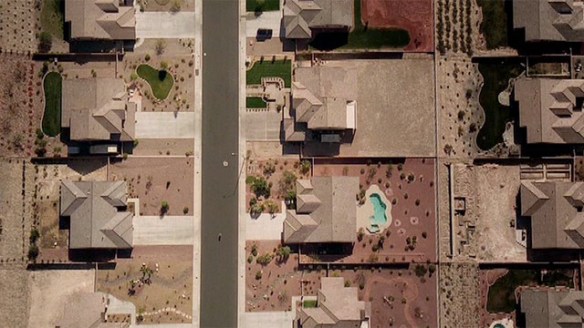News from Rob Coley of a Colloquium on Drone Culture organised by the University of Lincoln 21st Century Research Group, As Above, So Below, on Saturday 24th May; I’ll be giving one keynote and Benjamin Noys (Chichester) will be giving the other
CALL FOR PAPERS
The military use of aerial drones, or Unmanned Aerial Vehicles, has in recent years instigated huge controversy, dispute and protest. There continues to be much debate over the social and political implications of drone warfare, not least here in Lincoln, where, for the past year, the county has been home to the RAF’s Remotely Piloted Aircraft Squadron. As wartime base to the Lancaster bomber, Lincolnshire is, to many, still ‘Bomber County’, and today the UK’s provision of armed Reaper drones, which operate in Afghanistan on surveillance and combat missions, are controlled remotely from a base less than five miles from our university campus. The issues raised are, then, strikingly clear: the ethics of extrajudicial killing, the relation between ‘surgical’ strikes and ‘collateral’ civilian deaths, the diffusion of the conventional ‘battlefield’, the implications of the commercial use of drones in civilian airspace, the psychological effects of exerting power from a distance.
Though motivated by these issues, this one-day colloquium has been convened in order to examine the broader questions relating to the drone as a cultural concept and, in its virtual potentials, as a more complex set of transformations which extend beyond the actuality of the unmanned aerial vehicle. Specifically, drone culture is understood here as a symptom of what McKenzie Wark has called ‘vectoral’ power, a power that, constituted by flows of information, operates in abstract communicational space so as to exploit perception at a distance. In this sense, the cultural significance of the drone is inseparable from the newly complex processes of mediation unique to the 21st century.
This event will map the immanent forces of drone culture across a variety of disciplines and phenomena, and in doing so disclose its political and ethico-aesthetic expressions in literature, cinema, music, photography, theatre and performance. For examples, we might look to science-fictional explorations of the relation between air and informational power (Ballard, Pynchon, McCarthy), the drone in political theatre (such as George Brant’s Grounded), the drone in recent cinema (such as Oblivion with Tom Cruise), and the drone in art (see the work of Josh Begley, James Bridle, Omar Fast, Adam Harvey and Trevor Paglen). In response, the colloquium will include an exhibition of art works, performances and screenings.
You are invited to submit proposals for either:
- 20 minute paper presentation (with title and abstract of about 350 words)
- 5 minute ‘speed papers’ – positions, potentials and provocations (with title and abstract of about 100 words)
Suggestions for topics include, but are not limited to:
- aerial power, informational power, vectoral power
- maps and mapping
- speed and accelerationism
- perception at a distance: remoteness and affect
- video game logics
- drone temporalities (including audio and sonic)
- drone fictions (SF drones, drone horrors, weird drones)
- drones and swarms
- drone subjectivities and psychologies
- patterns of life in software-sorted space
- kill lists and ‘big data’
- the long history of distance weapons and intelligent machines
- the rhetoric of the ‘targeted’, ‘surgical’ and ‘signature’ strike
- counterinsurgency
- ubiquitous warfare and the normalization of crisis
- drone sorcery, magic and glamour
- thanatopolitics
Please include a short biographical note with all submissions and send in one word file to: abovebelow@lincoln.ac.uk
Deadline for all submissions: 31st January, 2014

